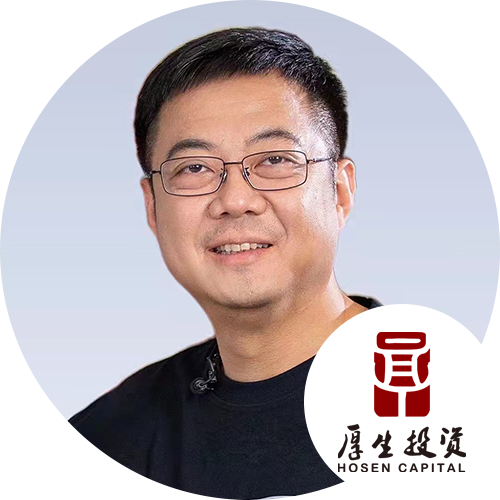
Mr. Wang is the Co-founding Partner of Hosen Capital, a China focused consumer private equity firm since 2010. Hosen’s investment strategy is anchored on two areas: Food Space and Mid-Market Buyouts. Through Hosen Club, it connects industry leaders, facilitate industry cooperation and support strategic developments.
Previously,he served as the Vice President of China Youth Entrepreneurs Association (“CYEA”).
Mr. Wang holds a master’s degree in Economics from Peking University.
In today's ever-changing landscape, the food and beverage market is facing unprecedented challenges and opportunities:
· The trend toward health and consumers' demand for high-quality products are driving the industry to accelerate its transformation from traditional products to innovative directions.
· In 2023, the Chinese sugar-free tea market grew by 110% year-over-year (Nielsen data). Behind the explosive growth of this category, competition has intensified, homogenization has become more prominent, and brands are trapped in the dilemma of "competing on price" to boost sales.
· Chinese food and beverage brands are accelerating their international expansion, with total exports reaching $76.5 billion in 2023. However, the share of sales from independent brands abroad remains limited. Breaking out of the Chinese community and penetrating local markets remains a key challenge for brands venturing abroad...
Against this backdrop, Calbee achieved a V-shaped sales rebound for its fries, which were once on the brink of discontinuation, through "differentiated taste"; Amys secured a foothold in international markets with its fun gummy designs featuring "multi-sensory" appeal; Kirin's Seicha "broke through the siege" with a brand renewal, achieving over 100 million in sales in just seven weeks; House Foods redefined children's curry with a "mild-spicy formula," selling 82.4 billion servings globally (as of December 2022); Meiji successfully revived its dormant bitter chocolate after 17 years with the "cocoa polyphenols" concept; Guo Zi Shuo Le became a category dark horse with its channel strategy and shelf tactics. These practices, transcending regions and periods, show how brands respond to market fluctuations through product innovation and reveal a product philosophy that transcends cycles: starting with deep consumer insights, blending technology and creativity, driving qualitative breakthroughs, and ultimately achieving growth.
This dialogue brings together representative brands of global product innovation to discuss how to achieve sustainable growth and breakthroughs in the rapidly changing market environment:
· The underlying logic of product innovation: How can we start with authentic insights to create truly globally appealing classic products?
· Building long-term brands: How can we build brand competitiveness that spans cycles and enables steady growth in the global market?
· Advancing overseas expansion strategies: Going abroad is more than just export—how can we deeply cultivate target markets, continue innovating, and achieve steady growth?
By reviewing classic cases that have broken through in challenging times and anticipating future industry trends, how can food and beverage companies learn in competition and co-create in cooperation? This dialogue will offer new directions for thinking and lead a new wave of global market growth.
Against the backdrop of geopolitical shifts and increasing market fragmentation, Chinese companies are moving from “product export” to “capital export” in their globalization journey. However, post-merger challenges—brand integration, cultural alignment, and supply chain restructuring—remain significant hurdles. Compared to global giants like Nestlé, Coca-Cola, PepsiCo and Mondelēz, who have honed their “capital + operations” dual-engine capabilities through a century of M&A, how can companies avoid the trap of peaking at acquisition? How can they turn acquisitions into sustainable growth engines instead of financial burdens?
This dialogue will focus on:
• The difference in M&A logic between Chinese and Western companies
• The "soft barriers" to successful integration
• Unpacking the hidden methodology of cultural compatibility and talent retention
• New rules in a shifting geopolitical landscape
• The possibilities for a uniquely Chinese answer

